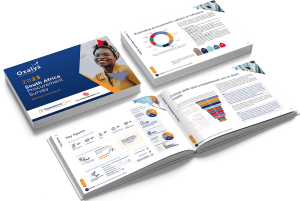 Within the context of Purchasing Index‘s (PI’s) Domestic Air Travel benchmark report, SAA continues to make up the bulk of domestic carrier usage (as indicated in the graph alongside for the five benchmark routes for the period Aug-Oct 2012).
Within the context of Purchasing Index‘s (PI’s) Domestic Air Travel benchmark report, SAA continues to make up the bulk of domestic carrier usage (as indicated in the graph alongside for the five benchmark routes for the period Aug-Oct 2012).
In this month’s SmartProcurement Alan Low wonders if this is justifiable?
Surely there should be a focus on using low cost carrier alternatives, booking in advance, or even reducing the amount of air travel conducted in order to work towards the common goal of reducing costs? This is particularly relevant in the current economic environment in South Africa.
 There is plenty evidence to support better use of low cost carriers. The graph alongside illustrates the difference in price between traditional carriers (SAA and BAComair) and low cost carriers (Kulula, Mango and 1Time) on the Johannesburg/Cape Town route for the period Aug-Oct 2012, when 1Time was still operational. The average fare is based on a one way ticket, including airport taxes, but excluding VAT.
There is plenty evidence to support better use of low cost carriers. The graph alongside illustrates the difference in price between traditional carriers (SAA and BAComair) and low cost carriers (Kulula, Mango and 1Time) on the Johannesburg/Cape Town route for the period Aug-Oct 2012, when 1Time was still operational. The average fare is based on a one way ticket, including airport taxes, but excluding VAT.
So why do travellers still book SAA if it is more expensive? Many organisations cite the incentive to earn Voyager Miles as one of the key drivers behind this trend. This may benefit the individual, but certainly not the organisation.
 The graph alongside shows how many flights need to be booked through SAA to get a “free” flight using the Voyager Miles accumulated.
The graph alongside shows how many flights need to be booked through SAA to get a “free” flight using the Voyager Miles accumulated.
So basically, you have to book 12 return flights on the Jnb/Cpt route, to get one “free” ticket using Voyager Miles. This would equate to 18 return flights on a low cost carrier.
Some organisations are trying to circumvent this by determining how many of their employees have a Voyager Mile account, and matching this information back to their transactional flight information to see which of these employees consistently use SAA as their carrier of choice.
Why not offer employees a free flight for consistently using a low cost carrier alternative? Or find other creative ways to incentivise travellers to make better use of these low cost alternatives? This may be difficult, depending on the culture of the organisation and the drive and buy-in from senior management.
PI‘s advice is to start sharing this information with travellers – to educate them on the benefits of planning travel in advance, using low cost carrier alternatives and highlighting the ultimate cost to the organisation of them accumulating Voyager Miles.
PI runs a number of independent travel benchmarking and travel analysis services.
If you are interested to learn more, please contact joshua@pibenchmark.co.za

























